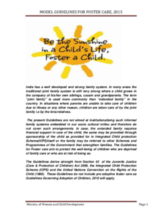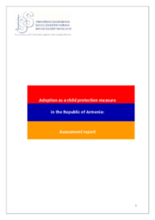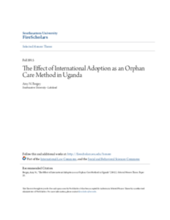Displaying 471 - 480 of 660
This article provides an overview of inter-country adoption of children from the United States to other countries.
This article, based on research in progress, discusses possible dangers of child abandonment and neglect in Lesotho, using attachment theory as its theoretical grounding.
This paper forms Part 2 of a two-part discussion paper on Indigenous custom adoption.
This fact sheet describes the rights of native children and families under the Indian Child Welfare Act (ICWA) in the United States.
This paper calls for creative pathways of engagement that delineate places of belonging for and with Indigenous youth in care.
The First Peoples Child & Family Review proudly presents this Special Edition on Custom Adoptions in partnership with the Siem Smun’eem Indigenous Child Wellbeing Research Network at the University of Victoria. This edition contains research articles, agency experiences, cultural perspectives and personal stories that highlight custom adoption from a historical and contemporary perspective.
This article is a review of lessons learned from the Yellowhead Tribal Services Agency (YTSA) pilot program.
These Guidelines for Foster care aim to protect the well-being of children in India who are deprived of family care or who are at risk of being so.
This report includes a number of observations about the adoption situation in Armenia as well as makes diverse recommendations targeting key actors.
This literature review addresses how international adoption affects Uganda’s orphan care methods from both micro and macro perspectives.




